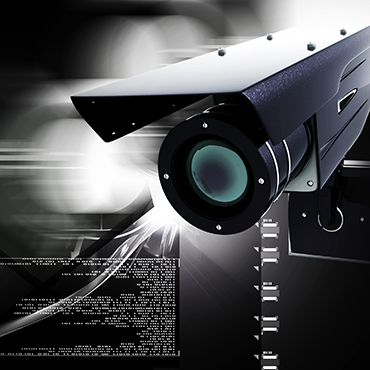Leadership of intell review group remains unclear

A high-level group of independent experts will review federal intelligence and communications technologies as a step in advancing the debate over U.S. surveillance activities, but who will lead the group and determine its membership remains unclear.

A high-level group of independent experts will review federal intelligence and communications technologies as a step in advancing the debate over U.S. surveillance activities, but precisely who will lead the group and determine its membership remains unclear.
President Barack Obama announced at a press conference Aug. 9 that the group would be created. An Aug. 12 memo from Obama ordered Director of National Intelligence James Clapper to establish the group, but now the White House is insisting that Clapper will play no operational role in the inquiry.
Controversy arose after the announcement of Clapper's designation to establish the group, which presumably will review National Security Agency programs, particularly since the director admitted to lying to Congress about NSA surveillance programs. In Aug. 13 statements to the press, a White House spokeswoman said Clapper will not direct the review group.
After Obama's announcement, Clapper confirmed that he will establish a review group to assess whether the U.S. adequately uses modern technologies to collect data in ways that protect national security and advance foreign policy, but also account for considerations such as potential leaks and public trust.
"At the direction of the President, I am establishing the Director of National Intelligence Review Group on Intelligence and Communications Technologies to examine our global signals-intelligence collection and surveillance capability," Clapper said in an ODNI press release. "The Review Group will brief its interim findings to the President within 60 days of its establishment, and provide a final report with recommendations no later than Dec. 15, 2013."
Despite what seems like a straightforward designation of Clapper as the group's lead – with his official title in the name of the group – White House officials, amid public outcry, insisted that is not the case.
"Director Clapper will not be a part of the group, and is not leading or directing the group's efforts," Caitlin Hayden, a White House spokeswoman, told The Hill.
"The White House is selecting the members of the review group, consulting appropriately with the intelligence community." According to the Guardian, Clapper's role "is one of facilitation," Hayden said.
“Just naming it with his title, even if he’s not involved as a practicality, really challenges the idea of independence,” said Aimee Thomson, legal fellow at the Project on Government Oversight. “One of the main reasons for having this review group is to ensure public trust – there can’t be public trust in the report if it’s seen to be influenced by the intelligence community that report is supposed to be evaluating.”
The review group is one element of plans Obama said he wants to enact to reassure Americans of the legitimacy of government programs that monitor and collect data related to online communications.
"After having a dialogue with members of Congress and civil libertarians, I believe that there are steps we can take to give the American people additional confidence that there are additional safeguards against abuse," Obama said in his Aug. 9 address.
Those plans center on improving transparency and oversight, including through Congress, the Foreign Intelligence Surveillance Court and the declassification and release of information about NSA surveillance activities. However, the review group itself will focus on a specific aspect of the effort to restore confidence.
According to Obama's memo, the goal of the review group is to "take stock of how these technological advances alter the environment in which we conduct our intelligence mission." That is not quite the same as addressing the privacy and civil liberty concerns expressed in the wake of the NSA surveillance disclosures by Edward Snowden earlier this summer.
The review group's ability to effectively contribute to public reassurance could be further questioned by who ends up carrying out the review – namely, intelligence community insiders and not the independent outsiders Obama originally touted.
"The review is focused on the narrower question of intelligence capabilities from the standpoint of intelligence," said Kate Martin, director of the Center for National Security Studies. "My understanding is that the people who will be tasked with carrying out that review will all have security clearances and therefore will be, in some way, associated with government. I don't think that this review panel will substitute for either the congressional process or the current public debate about what our government surveillance capabilities should be. But it doesn't look like it's intended to substitute for those."
While the review group appears to be focused on a specific piece of the broader government-surveillance argument, the two-month time frame could limit its effectiveness, at least for the most apparent point at issue, Martin added.
"The overall question the White House memo poses -- are we doing the best we can for intelligence collection given today's technology -- is not a question that can be answered by a part-time panel in 60 days," she said. "I'd be surprised if the administration expects that kind of in-depth analysis of that complicated question...I assume what they're looking for is a guide to the issues and questions that the intelligence community should focus on given changes in technology, and whether or not they already are focused on those questions."
While the purpose of the group is more technical than finding a solution to hot-button privacy and civil-liberties issues, it still will serve a significant purpose: addressing questions about the technology and intelligence implications at the center of what has become a national debate.
"It's a worthwhile undertaking to look at those questions, especially if the review results in a public report and outline of issues for public consideration," Martin said. "There has to be much more disclosure by the government about the law and the scope of the programs, and that disclosure has to be pushed for by Congress. Then there needs to be public-congressional-executive branch debate and review of the law and the scope, not just of these two programs, but of all of the [many] secret intelligence programs collecting information on Americans. You have to start off with a public record that's much more extensive than what we have so far."


